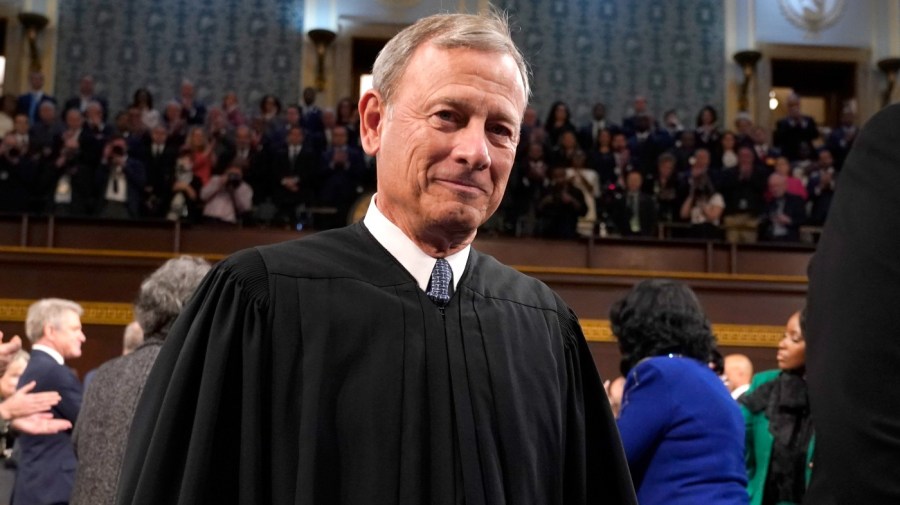
Chief Justice John Roberts condemned elected officials who have intimidated judges and defied court rulings, highlighting them in his year-end report on Tuesday as part of what Roberts called “illegitimate activity” that threatens the rule of law.
Roberts did not name any specific person, but he did note a federal district judge “whose decisions in a high-profile case” prompted an elected official to call for her impeachment and sparked a need for bar associations to “come to the defense.”
“Attempts to intimidate judges for their rulings in cases are inappropriate and should be vigorously opposed,” Roberts wrote. “Public officials certainly have a right to criticize the work of the judiciary, but they should be mindful that intemperance in their statements when it comes to judges may prompt dangerous reactions by others.”
In his nearly two-decade tenure as chief justice, Roberts has been focused on the Supreme Court’s image and keeping the court above partisan politics. His comments come as public trust in the court is near record lows and a heightened threat environment that has bolstered concerns about judges’ security.
The report does not mention President-elect Trump, but it comes as Republicans are set to take unified control of Washington upon his return to the White House next month. Trump regularly accuses judges overseeing his legal cases of political bias, and during his first presidential term, his criticisms of a judge appointed by former President Obama, earned a rare public rebuke from Roberts at the time.
The chief justice’s report went on to criticize elected officials who have openly disregarded federal court rulings, calling them “dangerous suggestions” that should be rejected. It is not clear to whom Roberts was referring, but he said the calls have come “from across the political spectrum.”
“It is not in the nature of judicial work to make everyone happy. Most cases have a winner and a loser. Every Administration suffers defeats in the court system—sometimes in cases with major ramifications for executive or legislative power or other consequential topic,” Roberts wrote.
He has often used his report on the federal judiciary, published annually on New Year’s Eve, to focus on judges’ independence and physical safety in his report. Other years, Roberts has addressed topics like artificial intelligence.
This year, he again raised alarm about violence against judges and highlighted how threats are increasingly being made online and in the form of doxxing. Roberts noted that some federal judges now have full-time security details or have been issued bulletproof vests for public events.
“Today, in the computer era, intimidation can take different forms. Disappointed litigants rage at judicial decisions on the Internet, urging readers to send a message to the judge,” Roberts wrote.
“They falsely claim that the judge had it in for them because of the judge’s race, gender, or ethnicity—or the political party of the President who appointed the judge. Some of these messages promote violence—for example, setting fire to or blowing up the courthouse where the target works,” he continued.
Roberts ended by briefly addressing that the federal courts “must do their part” to preserve public confidence alongside the other branches.
“We judges must stay in our assigned areas of responsibility and do our level best to
handle those responsibilities fairly,” the report reads.
“We do so by confining ourselves to live ‘cases or controversies’ and maintaining a healthy respect for the work of elected officials on behalf of the people they represent. I am confident that the judges in Article III and the corresponding officials in the other branches will faithfully discharge their duties with an eye toward achieving the ‘successful cooperation’ essential to our Nation’s continued success,” Roberts added.












